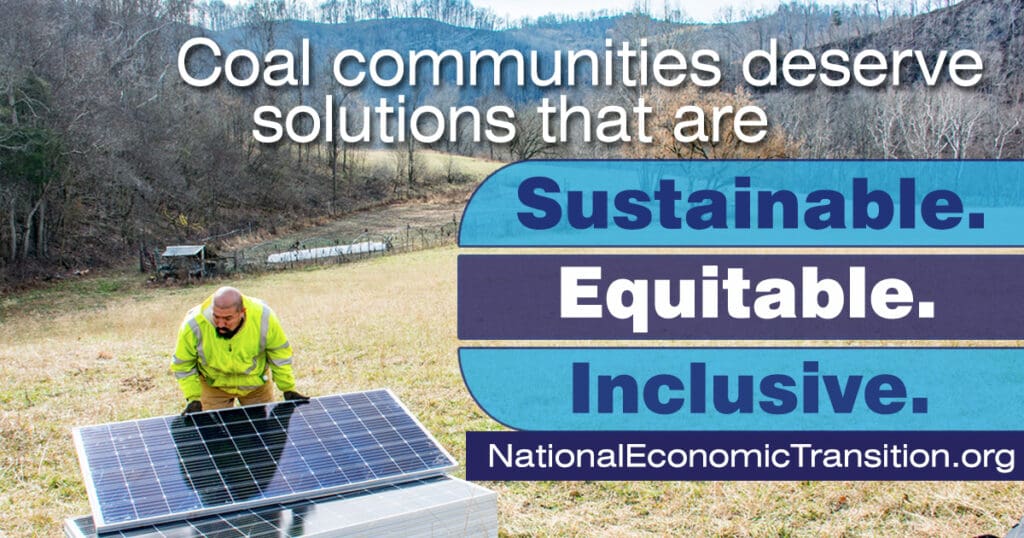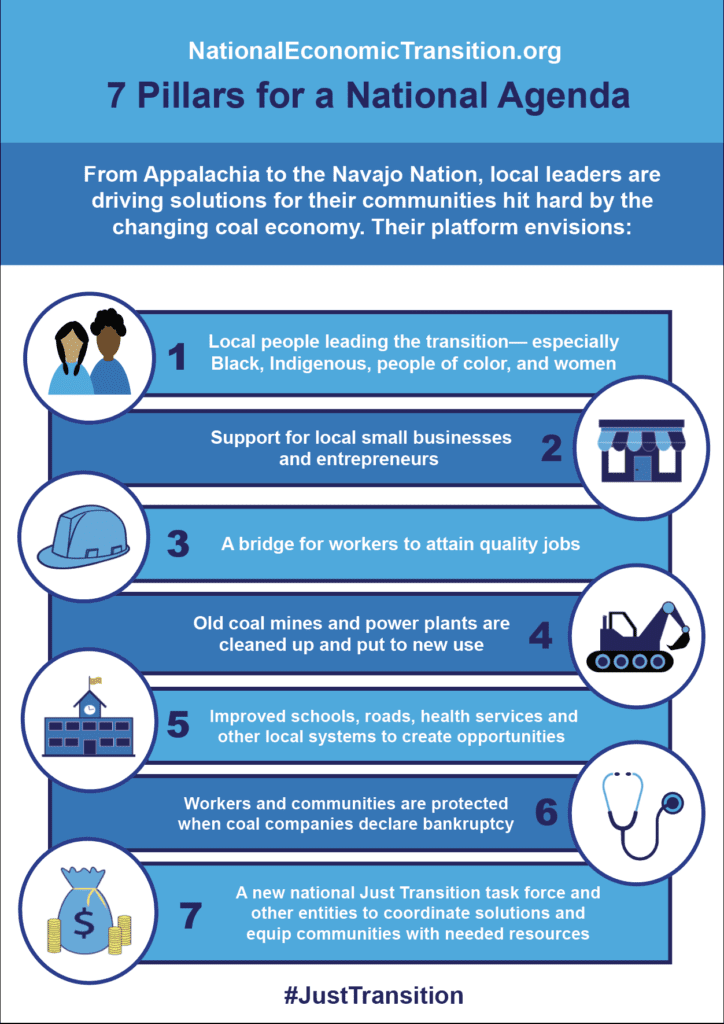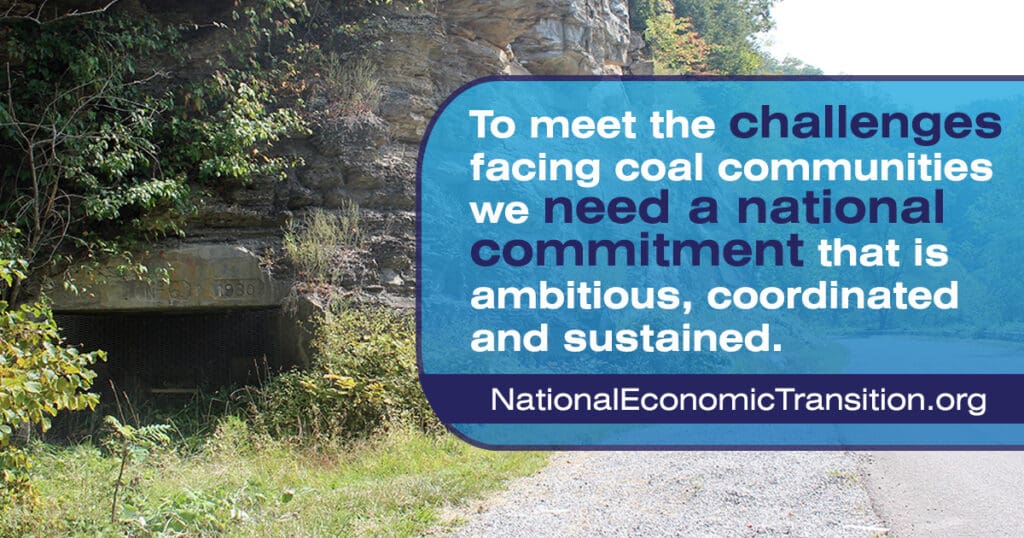BREAKING: Leaders from coal communities across America today released their historic platform for bolstering regions hit hard by the declining industry–a crisis deepened by the Covid pandemic.
In their National Economic Transition Platform, local, tribal and labor leaders call on national and federal leaders to make a big, bold investment in communities from Appalachia to the Navajo Nation to support community-driven solutions.

Communities across the country are being hit hard by the changing coal economy, whether it’s in Appalachia, the Midwest, the Navajo Nation or the Mountain West. The National Economic Transition platform lays out a bold, national plan that provides both immediate and long-term support to affected workers and communities and promotes a clean environment.
To tackle the crises facing communities from Appalachia to the Navajo Nation, the National Economic Transition platform urges leaders to invest in a national transition program built on 7 pillars of policy recommendations that put communities in the driver’s seat.

Amid the sharp decline of the coal sector over the last several years, community leaders have already developed and implemented local policy solutions that help tackle the climate crisis and spur inclusive, equitable, and sustainable economic growth in places that once relied on coal.
The National Economic Transition Platform presents national leaders with a path to scale up these solutions across the country by making a big, bold investment that supports the places and people hit hardest by the changing energy economy.
This year, U.S. coal consumption is projected to decline by more than 23 percent. Communities that once relied on coal face more job losses, further erosion of the tax base, and cuts to vital services in places that were already struggling.
This perilous situation deepens the challenges for low-income communities, communities of color, and tribal communities already disproportionately left behind by the status quo. We need our leaders to invest in an ambitious national community and worker transition program.

Workers in Wayne, West Virginia are learning to install solar panels. Navajo communities and entrepreneurs near a recently closed coal-fired power plant in Northern Arizona are launching clean energy and sustainable tourism enterprises and partnerships. Community members from Southwest Virginia to Western Colorado are creating regional food markets.
Sustainable, equitable, inclusive economic development solutions for the people and places hit hardest by the transition away from coal exist, and they are driven by communities. Our politicians need to listen and make big, bold investments in a national community and worker transition program.
NationalEconomicTransition.org
